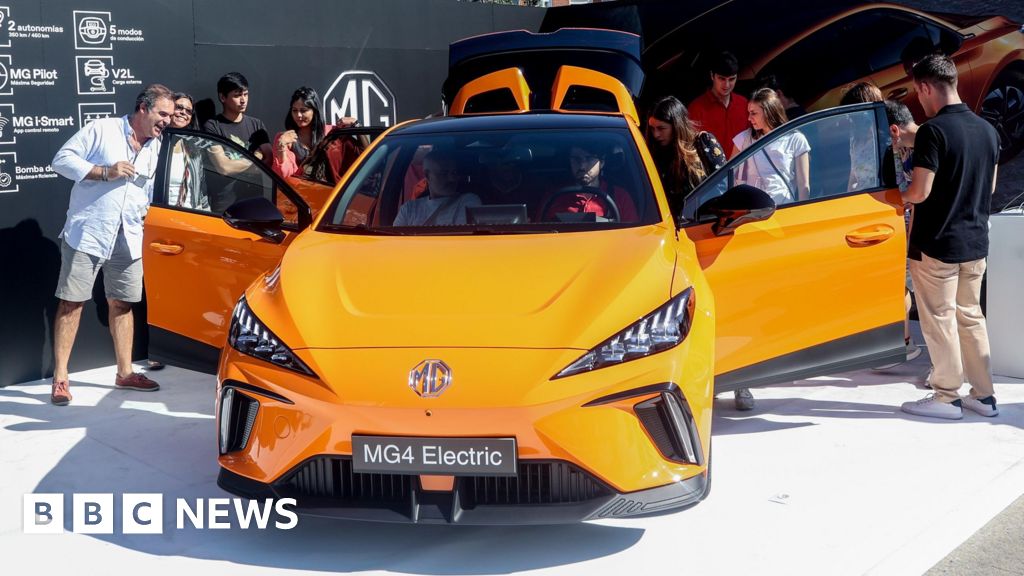The European Union has raised tariffs on Chinese electric vehicles, as Brussels takes action to protect the bloc’s motor industry.
The new tariffs on individual manufactures range from 17.4% to 37.6%, which is on top of a 10% duty that was already in place for all electric cars imported from China.
This could raise the price of EVs across the EU, making them less affordable for European consumers.
The move is also a major blow for Beijing, which is already in a trade war with Washington. The EU is the largest overseas market for China’s EV industry and the country is counting on high-tech products to help revive its flagging economy.
EU officials say this rise in imports was boosted by “unfair subsidisation”, which allowed China-made EVs to be sold at much lower prices than ones produced in the bloc.
China has denied this repeated allegation from the US and the EU: Beijing is subsidising excess production to flood western markets with cheap imports.
The new charges come into effect on Friday but are currently provisional while the investigation into Chinese state support for the country’s EV makers continues. They are not likely to be imposed until later this year.
So who are the potential winners and losers in this trade dispute?
It is not just Chinese brands that are affected by the move. Western firms that make cars in China have also come under scrutiny by Brussels.
By imposing tariffs, Brussels says it is attempting to correct what it sees as a distorted market. The EU’s decision may seem tame compared to a recent US move to raise its total tariffs to 100%, but it could be far more consequential. Chinese EVs are a relatively rare sight on US roads but much more common in the EU.
The number of EVs sold by Chinese brands across the EU rose from just 0.4% of the total EV market in 2019 to almost 8% last year, according to figures from the influential Brussels-based green group Transport and Environment (T&E).
Patryk Krupcala, an architect from Poland, who expects to take delivery of a brand new China-made MG4 in two weeks told the BBC: “I have chosen an MG4 because it is quite cheap. It is a really fast car and it’s a rear-wheel drive like my previous car which was BMW E46.”
T&E projects firms like BYD and Shanghai Automotive Industry Corporation (SAIC), the Chinese owner of the formerly British brand MG, could reach a market share of 20% by 2027.
But not all Chinese-made EVs will be hit equally by the new tariffs.

